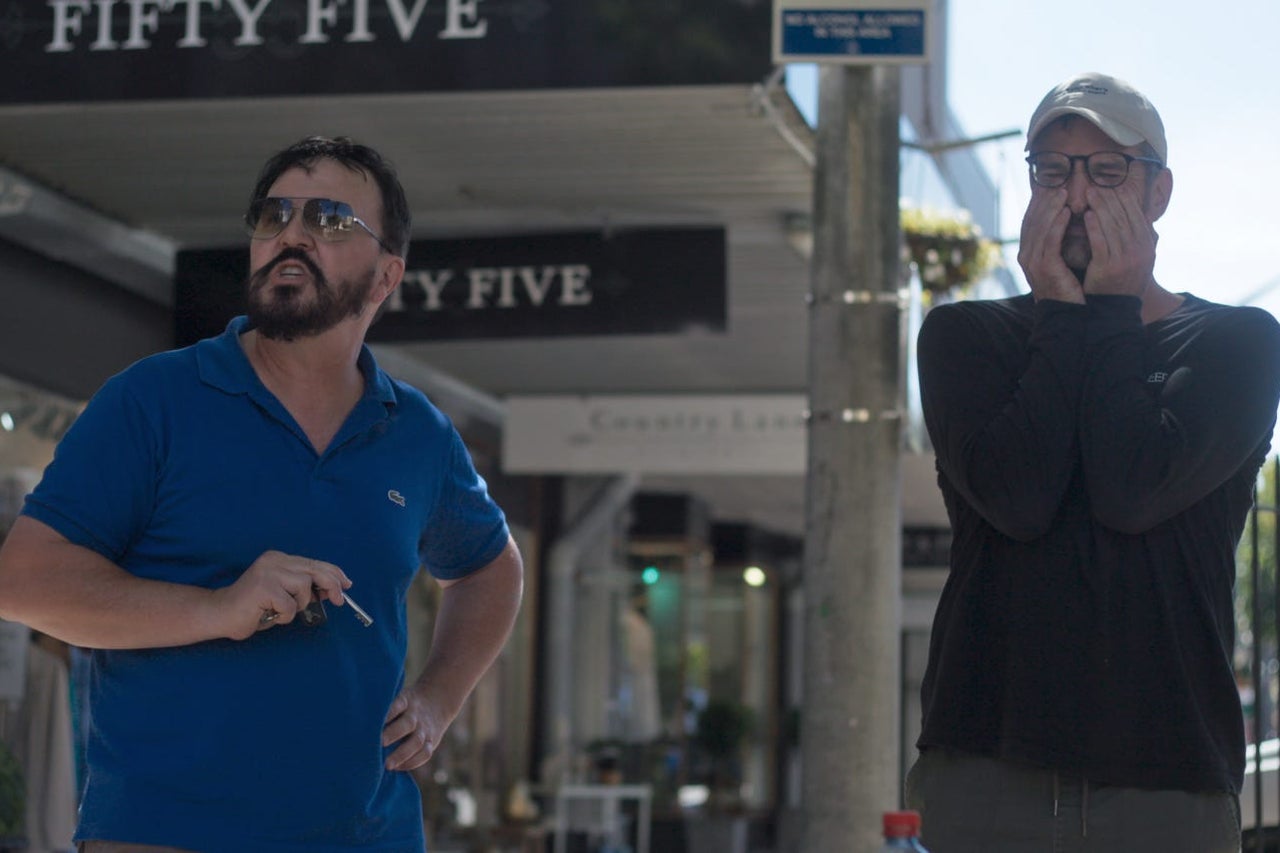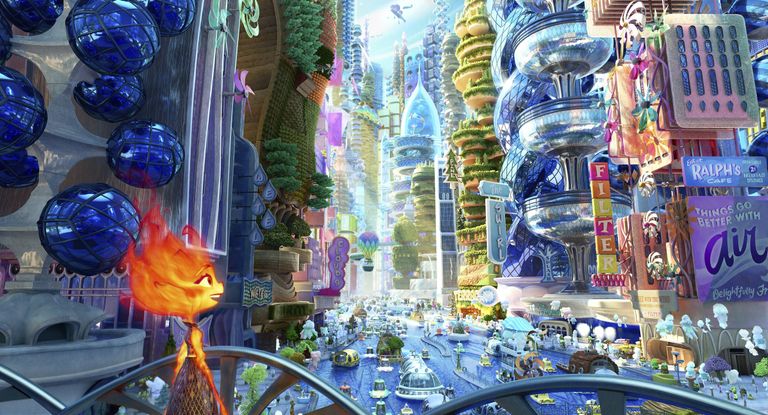We watched three movies this weekend, and here are my thoughts, complete with SPOILERS.

Mister Organ – Directed by David Farrier, the guy who made Tickled, this is a similar documentary in that it’s about an investigation into someone who seems to be severely mentally ill, but has enough money that he’s able to hide his trail and remain a shady figure. In this case, Farrier was originally looking at an antique store that had been clamping cars and charging high prices to have them removed, and the guy behind it turned out to be Michael Organ, who’s pretended to be a lawyer and a prince, and who managed to set up a rather spooky reputation for himself. Farrier talks to Organ a few times, and notices that sometimes he’s friendly and forthcoming, and other times totally unhinged. He also tends to talk about himself as if he’s multiple people, perhaps to heighten the mystique he’s trying to create. At one point, he steals a key to Farrier’s house, which didn’t seem to concern him as much as I would have thought, but the end of the movie does reveal that he moved afterwards. It’s strange, and shows how someone who at first seems utterly ridiculous can turn out to be actively dangerous.

Elemental – I’ve made it a point to watch all of the Pixar animated features, but I’m not always in a hurry to do so. In this case, all I’d really seen of it were the previews that showed little besides the visuals, so I wasn’t too excited about it. It was a lot better than I thought it would be, but I didn’t love it. It’s based on the idea of the classical elements, a theme that comes up in a lot of fiction. I’ve written about Paracelsus and his idea of living elemental beings, although they aren’t MADE of the elements themselves so much as having affinity for them. It’s also about the immigrant experience in a multicultural society, and generational differences. The story starts with a fire couple, named Bernie and Cinder Lumen as their original names are too difficult to pronounce in English, come to live in Element City, where Bernie opens a store that he plans to leave with his daughter Ember when she’s ready. Ember is prone to emotional outbursts, and one particularly severe one causes the basement to flood, also bringing in Wade Ripple, a water person working as a government inspector who’d gotten sucked into the plumbing while trying to find the source of some flooding elsewhere in town. Ember and Wade work together to discover the cause and fix it, which they do with help from her skill in glassworking, and develop feelings for each other. She keeps this secret from her family, especially her father, who has a cultural dislike of water in general. The fire people seem more insular than any of the other three elements, and there are indications that they have experienced prejudice. Ember recalls a time when she and her father were banned from a public event for their composition, with the excuse that they’d be a safety risk. And her meeting with Wade’s family has them acting well-meaningly awkward with her. As with Zootopia, it deals with prejudice against minorities, but does so in a way where there’s no clear majority actively putting down those unlike them, as there has been in much of American and European history. The water people are briefly shown to have been the first settlers in what became Element City, but there’s no sign of strife between them and the earth or air folk. And while Ember is often the only fire person in a scene when she’s outside Firetown, nobody seems to have any adverse reaction to her being there. As such, it kind of seems like Bernie is being unnecessarily unreasonable, when I think he was supposed to be basically well-meaning. He doesn’t always consider Ember’s feelings, but it’s not like she really communicates them with him until after it’s already become a major issue. Director Peter Sohn has said the whole thing was based partially on his experiences growing up as the son of Korean immigrants in New York City, so I doubt it was supposed to villainize their analogues. That isn’t really a criticism of the movie as its own thing, but it seemed like they were going for a real-life message that wasn’t sufficiently developed.

Rubber – This 2010 French horror comedy is allegedly about a tire that comes to life and kills people, and that does happen. It starts out running over things, but when it finds that’s not effective against larger objects or living things, it finds out that it can make them blow up through telekinetic powers. The way the tire moves around and reacts to things is surprisingly well-realized, in a comical way. That’s only part of the movie, though, as it has no fourth wall. The audience members are characters in the film; they’re introduced before the tire is, and regularly comment on what’s going on with the plot. When the tire visits a motel and kills a cleaning lady, there’s a crew member staying at the same place, and he feeds the audience poisoned turkey so they can stop making the movie without bothering to come up with an ending. One spectator survives and criticizes the rest of the film, only to be blown up by the tire, which had been killed and reincarnated as a tricycle. Quentin Dupleux, the writer and director, has stated what I pretty much suspected to be the case, that just doing the movie straight grew boring, so instead he decided to have it address its own ridiculousness and anticipate potential criticism. It was pretty funny, but obviously in a very weird way. While I didn’t expect to know any of the actors, I did notice that the motel manager was played by David Bowe, the guy Weird Al hit with a frying pan and fed dog treats in UHF.
